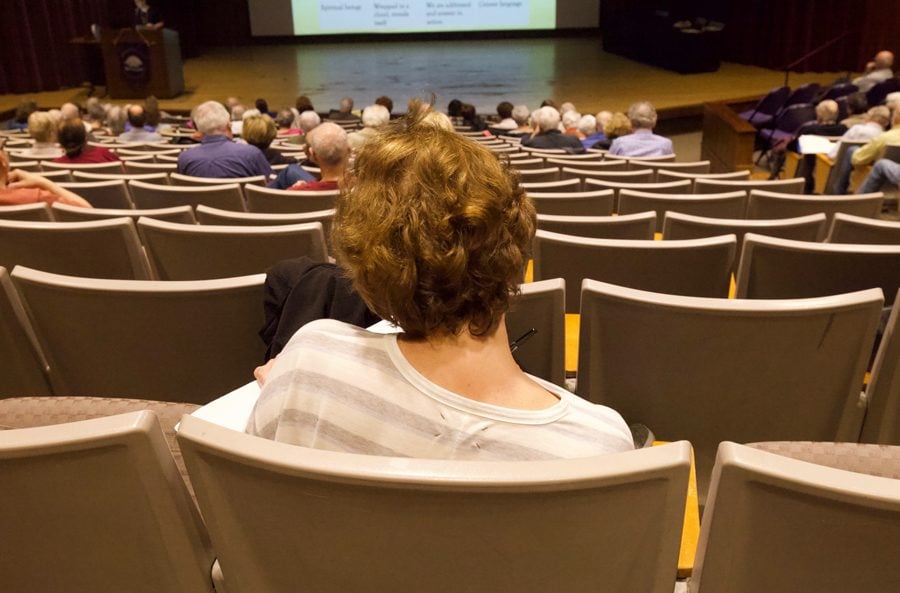Celebrating its 50th anniversary, continuing education program promotes lifelong learning on campus
Aaron Wang/Daily Senior Staffer
A student listens to Dr. Claire Sufrin lecture as a part of the Continuing Education program. The program is celebrating its 50th anniversary offering noncredit Northwestern courses to the public.
April 25, 2019
A class on the Arab Spring, hosted by the Continuing Education program, was once so popular that it had to be relocated to the larger Beth Emet Synagogue in Evanston, said program co-chair Sheila Gideon. However, when volunteers surveyed students at the end of the class, they still wanted to take it on campus, even if it meant capping the course.
“There’s an energy that’s generated from campus and being with students and seeing what’s on the walls,” Gideon (Communication ’60, ’61) said. “Just as we maybe bring something to campus, it certainly brings something to this group of people.”
The Continuing Education program, sponsored by the Alumnae of Northwestern University, is celebrating its 50th anniversary of offering noncredit Northwestern courses to the public. Four classes are offered by NU professors each quarter. The courses are often held Tuesdays and Thursdays in various locations within Norris University Center.
Courses and professors are selected with the help of “scouts,” or volunteers who aid with program curricula, co-chair Debby Hudson (Weinberg ’75, SESP ’93) said. Organizers will hear of an interesting class or professor — either through volunteers, students or other professors — and will reach out to them to teach a class. The program has held classes on topics ranging from robotics and artificial intelligence to Alexander Hamilton, to name a few.
Gideon said because the classes are held during the day, the majority of students are retired. Classes must be capped at 360 students, a number that Hudson said sometimes isn’t enough for the program’s most popular selections.
Evanston resident Charles O’Kieffe said he has been a fan of the classes for years, and first became interested when his wife took them while he worked. At 87 years old, O’Kieffe is currently enrolled in all four classes the program offers and said he enjoys the classes because it gives him something to do “upstairs” away from his routine at a Presbyterian retirement home. The professors are knowledgeable, he said, and he enjoys the community of learners that gathers to hear them speak.
“We’re all here for the same reason — to learn something and be challenged,” he said.
Claire Sufrin, assistant director of Jewish Studies is currently teaching her fourth class for the program entitled “Martin Buber: Philosopher, Theologian, Poet.” Compared to the undergraduate courses she teaches, she said adults are usually pretty excited to be in class.
While she understands weekly lectures are not for everybody, Sufrin said it’s rewarding to see students coming back class after class.
“The main thing we often say that we teach in humanities classes is critical reading and writing skills and the ability to know that we’re in a particular historical moment,” Sufrin said. “I think being reminded of that is really important at different stages of life.”
And since the students are mainly older, Sufrin said they have often lived through the events she lectures on. Because of this, Sufrin said she hears about the material she teaches in a new light.
To that point, Gideon agreed, saying one of her favorite parts of running the program is seeing how students can speak to the culture of a particular era.
“They are the most interesting, well-traveled, well-educated, critical, discriminating individuals,” Gideon said. “It’s really an inspiration to see how people can keep that zest for learning throughout their lives.”
Email: [email protected]
Twitter: @charwalsh_


